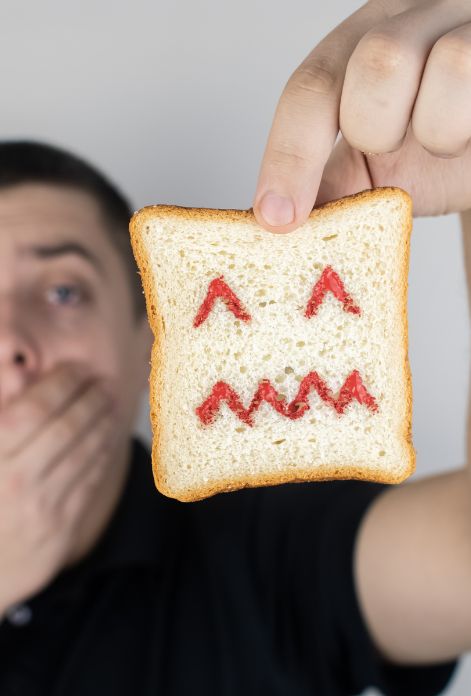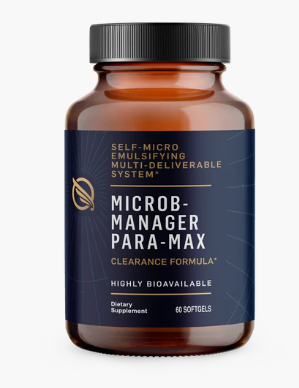Celiac Disease Diagnosis and Treatment at Five Journeys

Celiac disease, an autoimmune disorder, can turn the simple act of eating gluten into a health challenge. At Five Journeys, we intimately understand this struggle. Our founder, Dr. Wendie Trubow, not only leads our team but also lives with celiac disease herself. As the president of the National Celiac Association, her personal journey fuels our commitment to a holistic approach to celiac disease management and gluten allergy treatment. Research underscores the vital role of a strict gluten-free diet in managing symptoms and preventing long-term complications for individuals with celiac disease. Our compassionate team, led by Dr. Trubow’s insights, is dedicated to helping you navigate life with celiac disease, empowering you to thrive with personalized care and support.
How Celiac Disease Impact Your Health
Celiac disease is a serious autoimmune disorder triggered by gluten consumption. When people with celiac disease eat gluten, their immune system attacks the small intestine, causing inflammation and damage. This can lead to a range of symptoms, including abdominal pain, diarrhea, fatigue, and nutrient deficiencies, significantly impacting their quality of life.
While there is currently no celiac disease cure, a strict gluten-free diet is the cornerstone of effective celiac disease treatment. By eliminating gluten, the small intestine can heal, and the risk of long-term complications like osteoporosis is reduced. Adhering to a gluten-free diet not only manages symptoms but is crucial for preventing further damage and improving overall health and well-being.
Importance of Early Celiac Disease Treatment
Early celiac disease treatment is crucial, as it can prevent damage to the small intestine and reduce the risk of complications like nutritional deficiencies and autoimmune conditions. A strict gluten-free diet is the cornerstone of effective celiac disease management, and when implemented early, it can significantly improve long-term health outcomes. A study in the journal Nutrients emphasizes the importance of early diagnosis and intervention for celiac disease, highlighting the growing interest in gluten-related conditions and the challenge this poses for timely diagnosis. While there is currently no celiac disease cure, a gluten-free diet, when initiated promptly after diagnosis, can effectively manage symptoms, prevent complications, and improve the overall quality of life for individuals with celiac disease.The Spectrum of Celiac Disease
Celiac disease isn’t a one-size-fits-all kind of thing. Just like people are unique, so is how celiac disease shows up. Some folks might have the classic symptoms like tummy aches, diarrhea, or feeling tired all the time. Others might not feel sick at all, but there could still be damage happening in their gut. Research shows that celiac disease can really run the gamut from mild to severe, and everything in between! That’s why it’s super important to talk to your doctor if you’re worried, even if you feel fine. Catching it early and starting treatment can make a world of difference in how you manage celiac disease and stay healthy in the long run.Interested in Celiac Disease Treatment? Ask your provider or book a call with us!
How to Prevent Celiac Disease
Currently, there is no known cure for celiac disease or a cure for gluten allergy. However, effective management of celiac disease involves a multi-faceted approach:
- Early Diagnosis: Early detection of celiac disease through screening and diagnostic tests is crucial for prompt intervention and minimizing potential damage to the small intestine.
- Strict Gluten-Free Diet: The cornerstone of celiac disease management is a lifelong commitment to a strict gluten-free diet. This involves avoiding all foods containing wheat, barley, and rye, as even trace amounts of gluten can trigger an immune response and damage the intestinal lining.
- Nutritional Support: Individuals with celiac disease may require nutritional supplements to address deficiencies caused by malabsorption. Consulting a registered dietitian or healthcare professional can help tailor a personalized supplement plan.
- Regular Follow-up: Regular check-ups with a healthcare provider are crucial to monitor disease progression, assess nutritional status, and adjust the treatment plan as needed.
By following these comprehensive strategies, individuals with celiac disease can effectively manage their condition, minimize symptoms, and prevent long-term complications.

Celiac Disease and Gluten Allergy Symptoms
Diarrhea and Constipation
Diarrhea and constipation are common symptoms of both celiac disease and gluten intolerance, often resulting from inflammation and irritation in the digestive tract. Gluten intolerance treatment involves removing gluten from the diet to alleviate these symptoms.
Anemia
Anemia can occur in individuals with celiac disease due to malabsorption of essential nutrients like iron and folic acid. Research suggests that patients presenting with anemia may have more severe celiac disease than those presenting with diarrhea, highlighting the importance of recognizing anemia as a potential red flag. Proper celiac disease management through a gluten-free diet helps improve nutrient absorption and resolve anemia.
Fatigue and Weakness
Fatigue and weakness are frequent complaints among those with celiac disease due to nutrient deficiencies and ongoing inflammation. Effective gluten intolerance treatment can restore energy levels and overall strength by addressing these underlying issues.
Dental Enamel Defects
Dental enamel defects, such as discoloration or erosion, can be a sign of celiac disease-related nutrient deficiencies. Managing celiac disease with a gluten-free diet can help prevent these defects and improve dental health.
Headaches and Migraines
Headaches and migraines can be triggered by gluten ingestion in individuals with celiac disease, due to systemic inflammation. Celiac disease management with a strict gluten-free diet can help reduce the frequency and severity of these headaches.
Diagnostic Methods
Serological Tests
Serological tests detect specific antibodies in the blood that are elevated in response to gluten ingestion in individuals with celiac disease. Common tests include anti-tTG (tissue transglutaminase) and anti-EMA (endomysial antibody) tests, which help in initial diagnosis.
Genetic Testing
Genetic testing identifies the presence of HLA-DQ2 or HLA-DQ8 genes, which are associated with an increased risk of developing celiac disease. While not definitive for diagnosis, these tests can support the diagnosis if serological tests are inconclusive. Nordic Laboratories offers the Nordic DNA Health test, which evaluates the genetic profile for multiple health indicators, including those related to celiac disease. This comprehensive test can provide valuable insights into genetic predispositions and aid in the overall assessment of health risks.
Endoscopic Biopsy
An endoscopic biopsy involves taking small samples of the small intestine lining during an endoscopy to examine for damage characteristic of celiac disease, such as villous atrophy. This procedure is crucial for confirming the diagnosis after positive serological tests.
Why Begin Improving Your Health with Five Journeys?
Beginning your journey to improved health with Five Journeys offers a comprehensive approach that encompasses various aspects of wellness. Our commitment to optimal health and well-being is evident in our personalized and holistic approach to care. Here are some reasons why you should choose Five Journeys to improve your health:
Holistic Approach
At Five Journeys, we recognize that true wellness encompasses more than just physical health. We take a holistic approach that considers all aspects of your well-being, including physical, emotional, mental, and spiritual health.
Personalized Care
We understand that each individual is unique, and their health needs are different. That's why we tailor our services to meet your specific needs and goals. Whether you're seeking preventive care, managing chronic conditions, or optimizing your overall health, we provide personalized solutions that prioritize your well-being.
Insurance Accepted
At Five Journeys in Boston and Newton, we understand the challenges of living with celiac disease. Our team is committed to providing comprehensive care and support to empower you to thrive. We invite you to take our insightful celiac disease quiz and explore our personalized treatment plans to start your journey toward improved health and well-being today.
*Massachusetts law does not allow us to accept MassHealth & Medicaid. Other exceptions may apply.
Why we do, What we do...






























